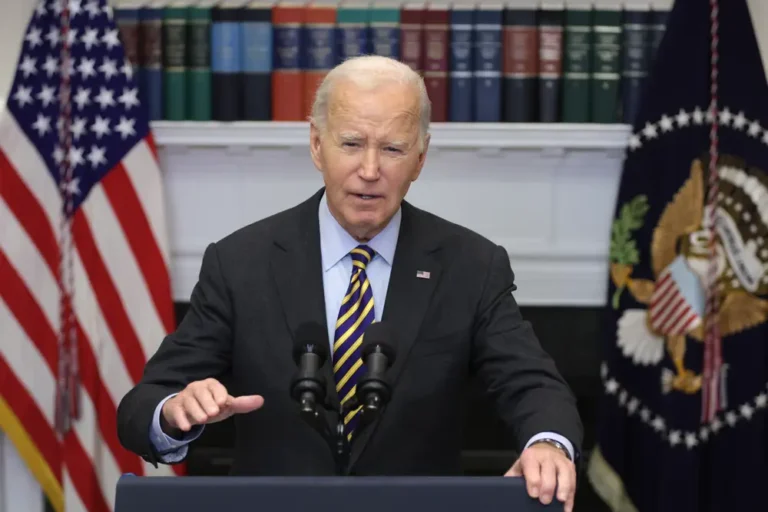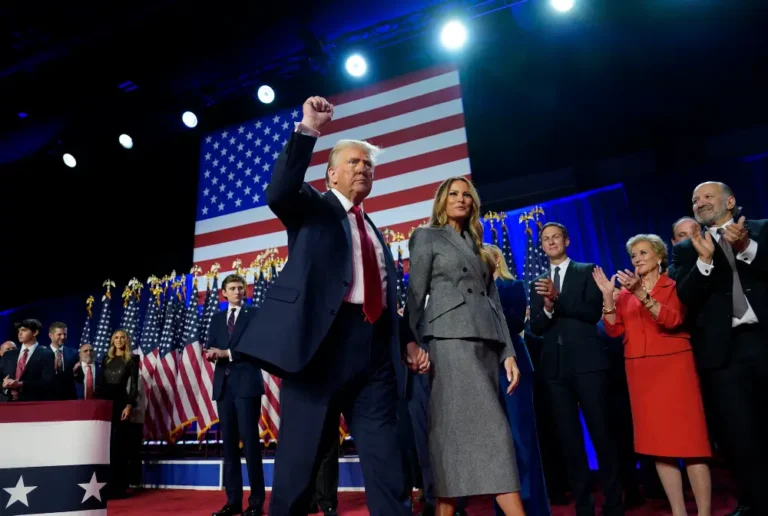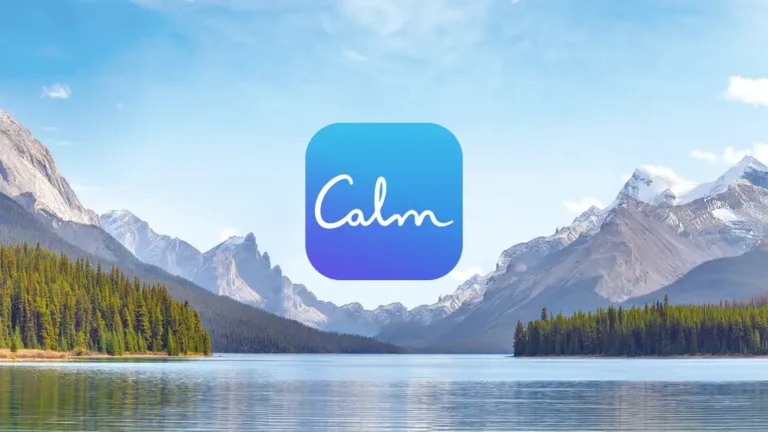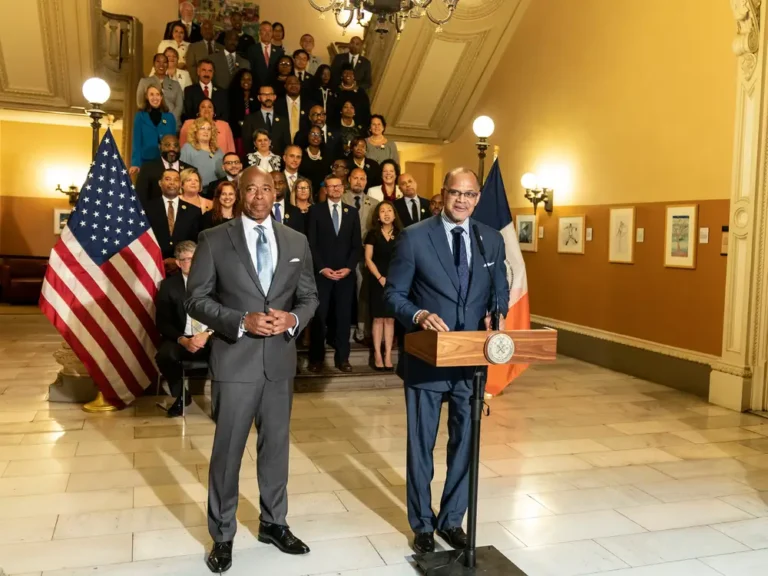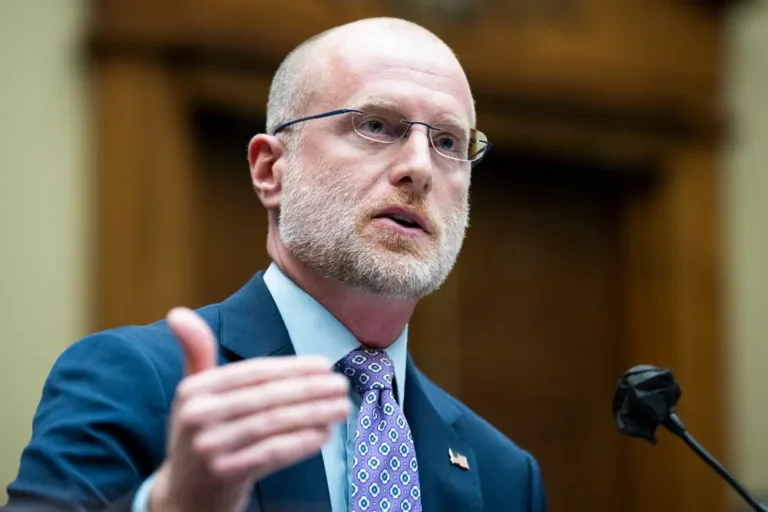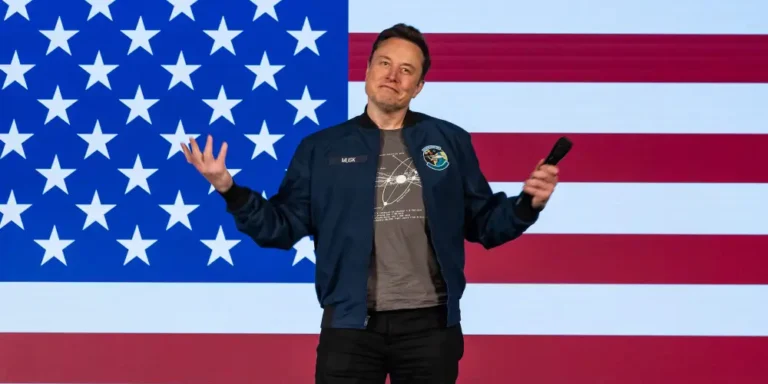Trump says he’ll create an ‘external revenue service’ on Day One to help collect tariffs and revenue from other countries
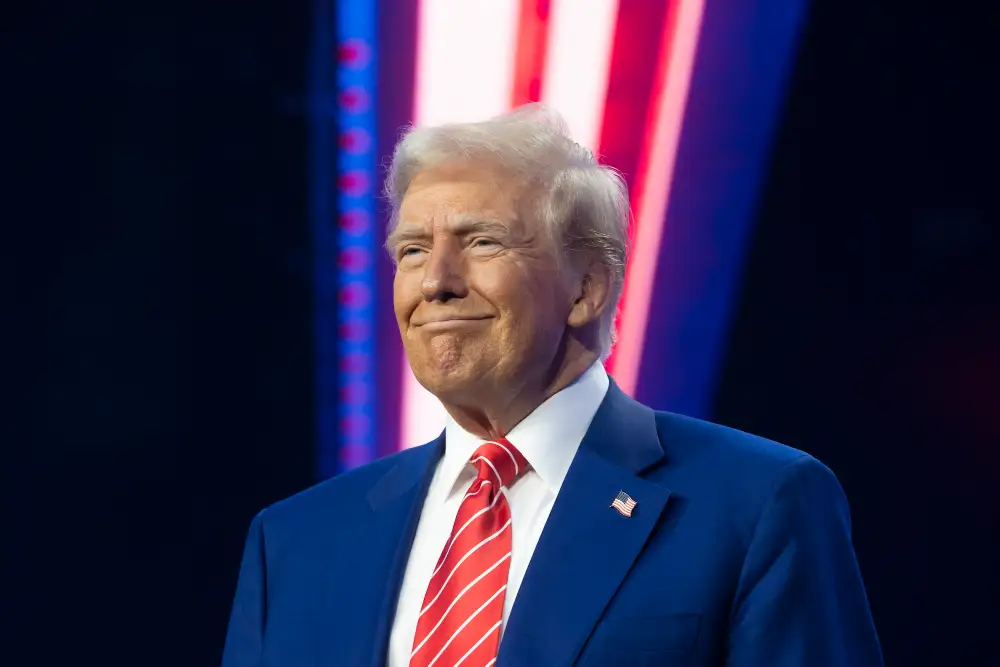
President-elect Donald Trump said he’ll create an “external revenue service” on his first day in office.
President-elect Donald Trump said on Tuesday that he will create a new agency to facilitate his tariff proposals on his first day in office.
Trump posted on his social media platform Truth Social that he would create an “external revenue service,” which he said would “collect our Tariffs, Duties, and all Revenue that come from Foreign sources.” He said the external revenue service would go into effect on January 20, the first day of his presidency.
“For far too long, we have relied on taxing our Great People using the Internal Revenue Service (IRS),” Trump said. “Through soft and pathetically weak Trade agreements, the American Economy has delivered growth and prosperity to the World, while taxing ourselves. It is time for that to change.”
While it’s not clear how Trump would go about creating the external revenue service, establishing a new agency requires congressional approval.
Broad tariffs have been a cornerstone of Trump’s campaign. On the campaign trail, he called for a 60% tariff on goods imported from China, along with a 10% to 20% tariff on all other imports. He later amped up his threats on foreign countries by vowing for more tariffs on Canada and Mexico if they failed to crack down on immigration and drug trafficking, and he warned of further tariffs on BRICS nations unless they committed to not creating a new currency that would compete with the US dollar.
Trump’s transition team did not immediately respond to a request for comment from B-17 about additional details on the external revenue service.
The US Customs and Border Protection already collects revenue for the US by enforcing trade laws — data from the CBP found that the agency took in $3.35 trillion in imports and revenue collections in fiscal year 2022. It’s unclear how the external revenue service would differ from or work with CBP.
Earlier on Tuesday, Steve Bannon, a former Trump White House advisor, put the creation of an external revenue service on his wish list for Trump’s first 100 days in power. Like Trump, Bannon has said the US should return to an era that relies more on tariff fees to fund the federal government.
“You wouldn’t just look at tariffs, you would look at everything about how you can charge fees, essentially, whether that is on investment, access to this country,” Bannon told Politico during an event focused on Trump’s first 100 days. “America is behind the golden door. This market is the most robust, lucrative market in the world, and we shouldn’t just let people have access it — we shouldn’t let foreigners have access to this market and to the American people and to the American citizens for free.”
Trump has dismissed concerns that raising tariffs will increase consumer prices. Studies of Trump’s first-term tariffs showed that tariffs did increase the cost of goods like washing machines. Allies would likely impose retaliatory tariffs of their own, as they did under Trump’s first-term trade policy.
A number of economists and trade experts have predicted that Trump’s broader tariff proposals could have a larger impact on the economy and consumers than they did during his first term. The nonpartisan Peterson Institute, for example, predicted that Trump’s proposed 60% tariff on goods imported from China could boost inflation by 0.4 percentage points in 2025.

